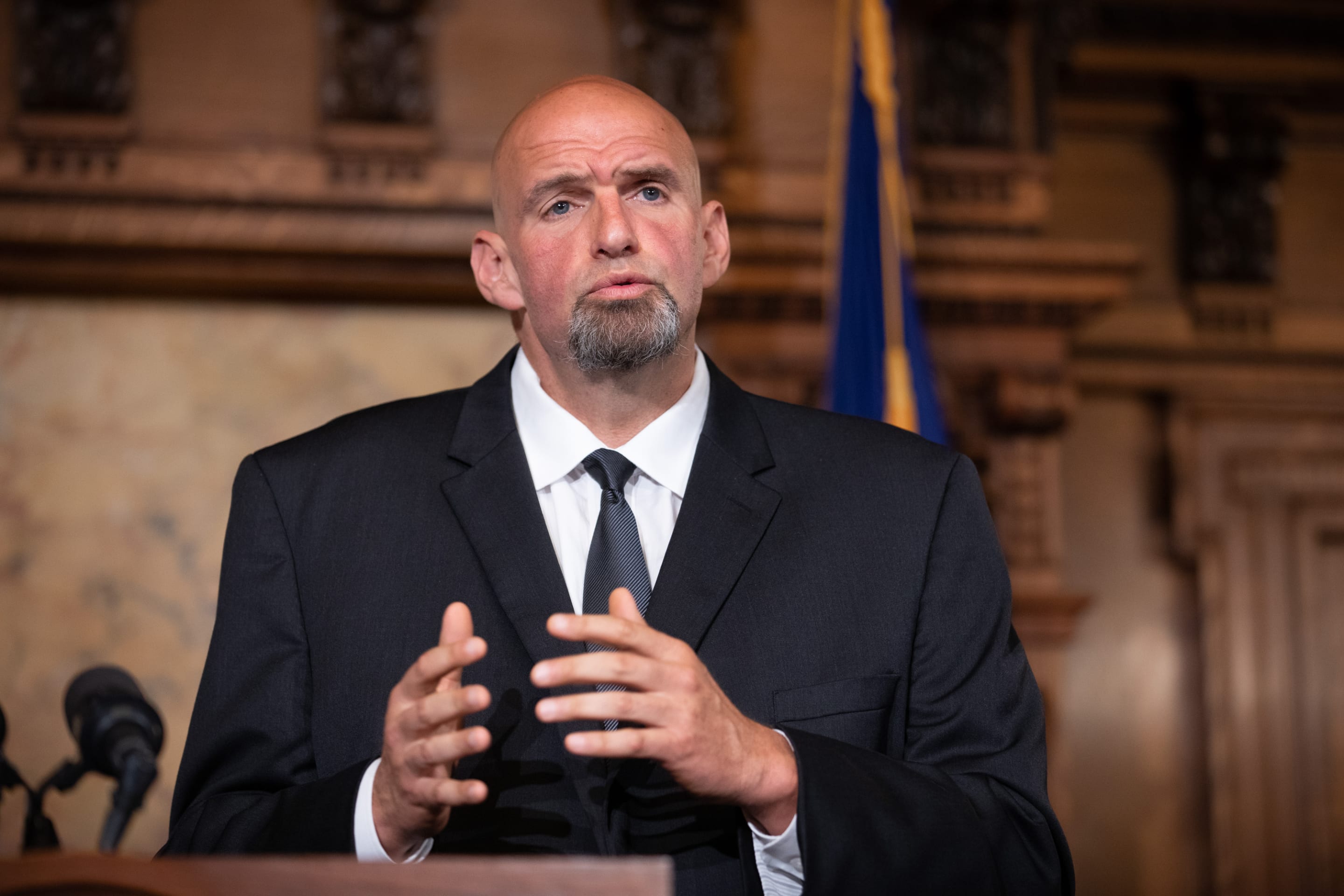
Sen. John Fetterman To Be Treated for Clinical Depression
How do you feel about Fetterman's openness with his mental heath struggles?
What’s the story?
- Sen. John Fetterman (D-PA) checked himself into Walter Reed hospital for clinical depression earlier this week.
- A statement released by Fetterman’s team said he has been experiencing depression on and off, but in recent weeks it became severe. The senator is receiving voluntary inpatient treatment.
- Fetterman’s wife, Gisele Barreto Fetterman, took to Twitter to ask for privacy and praise her husband’s honesty:
After what he’s been through in the past year, there’s probably no one who wanted to talk about his own health less than John. I’m so proud of him for asking for help and getting the care he needs. pic.twitter.com/SfuwWTSUcG
— Gisele Barreto Fetterman (@giselefetterman) February 16, 2023
Fetterman receives praise and support
- Many of Fetterman's colleagues have applauded his decision and openness, as government officials rarely publicly acknowledge mental health struggles.
- Rep. Ritchie Torres (D-NY) stood in solidarity with Fetterman. He said on Twitter:
“Back in 2010, I was hospitalized for depression. I would not be alive, let alone in Congress, were it not for mental health care. Millions of Americans are rooting for you, Senator.”
- Sen. Ted Cruz (R-TX) posted to Twitter as well, saying:
“Mental illness is real & serious, and I hope that [Fetterman] gets the care he needs. Regardless of which side of the political aisle you’re on, please respect his family’s request for privacy.”
The truth about depression
- The Census Bureau’s Household Pulse Survey found that 39% of adults suffer from symptoms of depression, which include persistent feelings of sadness, emptiness, and hopelessness, loss of interest, and a range of other mental and physical indications. In some cases, depression can lead to recurring thoughts of suicide.
- While depression can be treated for the most part, there is a lot of misconception that it is comparable to a bad mood. Many cases of depression need to be treated with prescription medication, psychotherapy, inpatient treatment, significant lifestyle or behavior changes, and so on.
- Mental health stigma, prejudice, and discrimination often lead people to delay or avoid seeking treatment. The American Psychiatry Association reports that more than half of people with mental illnesses do not, or cannot, receive help.
How to get help
- If you or someone you know is in crisis, please seek immediate help. The National Suicide Prevention Lifeline is free, confidential, and accessible 24/7 at 1-800-273-TALK (8255). You can also chat online with their Lifeline Crisis Chat here.
- The CDC provides resources for how you or someone you want to help can connect with trained mental health professionals.
- The National Institute of Mental Health also has resources, including how to find a healthcare provider or treatment and ways to learn more about mental disorders.
How do you feel about Fetterman's openness about his mental health struggles?
-Jamie Epstein
(Photo credit: Flickr/Governor Tom Wolf)
The Latest
-
 Changes are almost here!It's almost time for Causes bold new look—and a bigger mission. We’ve reimagined the experience to better connect people with read more...
Changes are almost here!It's almost time for Causes bold new look—and a bigger mission. We’ve reimagined the experience to better connect people with read more... -
 The Long Arc: Taking Action in Times of Change“Change does not roll in on the wheels of inevitability, but comes through continuous struggle.” Martin Luther King Jr. Today in read more... Advocacy
The Long Arc: Taking Action in Times of Change“Change does not roll in on the wheels of inevitability, but comes through continuous struggle.” Martin Luther King Jr. Today in read more... Advocacy -
 Thousands Displaced as Climate Change Fuels Wildfire Catastrophe in Los AngelesIt's been a week of unprecedented destruction in Los Angeles. So far the Palisades, Eaton and other fires have burned 35,000 read more... Environment
Thousands Displaced as Climate Change Fuels Wildfire Catastrophe in Los AngelesIt's been a week of unprecedented destruction in Los Angeles. So far the Palisades, Eaton and other fires have burned 35,000 read more... Environment -
 Puberty, Privacy, and PolicyOn December 11, the Montana Supreme Court temporarily blocked SB99 , a law that sought to ban gender-affirming care for read more... Families
Puberty, Privacy, and PolicyOn December 11, the Montana Supreme Court temporarily blocked SB99 , a law that sought to ban gender-affirming care for read more... Families
 Climate & Consumption
Climate & Consumption
 Health & Hunger
Health & Hunger
 Politics & Policy
Politics & Policy
 Safety & Security
Safety & Security
